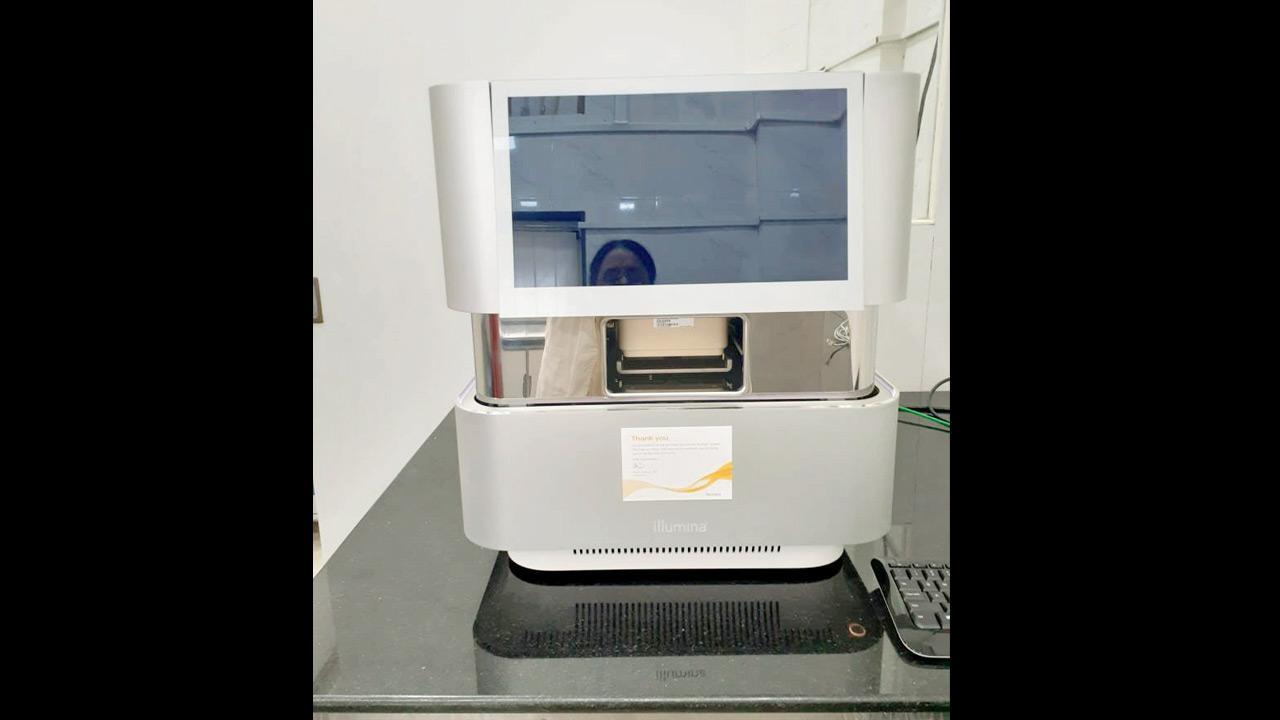Home / Mumbai / Mumbai News / Article /
Mumbai: Kasturba hospital’s genome lab set to trace Covid-19 variants
Updated On: 05 August, 2021 07:28 AM IST | Mumbai | A Correspondent
Amid the Covid-19 pandemic, various strains have emerged with different characteristics like ultrafast speed, serious symptoms, etc

One of the two genome sequencing plants at Nair hospital
The BMC’s genome sequencing lab at Kasturba was inaugurated on Wednesday and is set to help the city trace and track Covid-19 variants to check the virus’s spread. The lab can test 384 samples simultaneously and results can be obtained within four days.
Amid the Covid-19 pandemic, various strains have emerged with different characteristics like ultrafast speed, serious symptoms, etc. Genome sequencing uses genetic formulas to identify different strains or variants of the same virus and helps track patients, trace high-risk contacts and treat them. Samples from across the country are sent to the National Institute of Virology at Pune but the results take two to three months due to the sheer number of samples to be tested. The delay does not contribute much to curbing the spread or treating patients.



